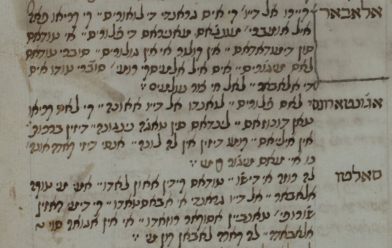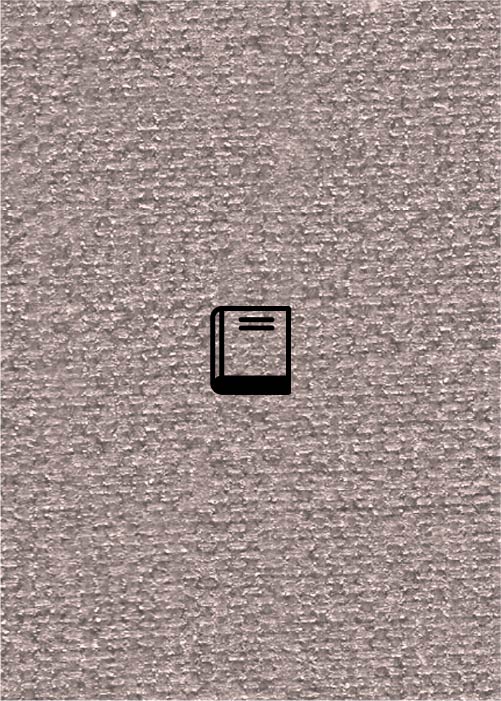Perahia Alhadef (Rhodes)
1. El Atán, el Atado y el Ara (Et Sha'arei Ratzon)
Judeo-Spanish version of a liturgical poem (piyyut) of the ‘akedah type included in the morning service of Rosh Hashanah, preceding the blowing of the shofar between shaḥarit and musaf, and in certain communities (such as Libya) also in the ne'ilah of Yom Kippur. The original Hebrew text was composed by Yehudah Shmuel ibn Abbas (Fez, Morocco, c. 1100-Aleppo 1167). The poem is a moving retelling of the biblical account of the Binding of Isaac by his father Abraham and its subsequent cancelation by divine intervention (Genesis 22:1-14). The biblical narrative is expanded in the piyyut with midrashim (post-biblical commentaries) that elaborate the original narrative where the biblical text remains silent.
The texts recorded come from free translations of the Jewish liturgy into Judeo-Spanish (that is, not from Ladino-calque translations), versions that were eventually printed in prayer books, in Hebrew characters, parallel to the original Hebrew text. Over the years, these Judeo-Spanish translations have become set in the memories of Sephardic men and women. Its stanzas consist mostly of six lines, parallel to those of the original Hebrew poem, with the ending of each line rhyming. The last line of the first stanza of the original poem, ‘Oqed vehane‘eqad vehamizbeaḥ, is repeated in Hebrew, as a refrain, at the end of each stanza. Unlike the Hebrew poem, the line preceding the refrain does not rhyme with it in eaḥ but maintains the same rhyme as the rest of the stanza.
The poem in Ladino has been preserved in more or less complete versions in the prodigious memory of the brothers Rosa and Perahia Avzaradel from the Island of Rhodes (1a-b). The melody they use is a variant of that of Et sha’arei ratzon in the liturgical tradition of the Ottoman Sephardim (see Idelsohn 1923, p. 203, no. 240).
The three versions from Thessaloniki (1c-e) and the one from Bulgaria (1f), on the other hand, focus only on a key stanza of the poem in which Isaac laments for the suffering that his sacrifice would cause to his mother. Hablad a mi madre is one of the most emotionally-charged verses of this piyyut and for this reason it has been traditionalized, frequently memorized and also commercially recorded by Sephardic ḥazanim as an autonomous song. Its melody, extremely elaborate and slow, reflects Isaac’s desperate request and is different from that of the piyyut, relating more to the tune of the copla La ketubá de la Ley (see below, no. 35).
Texts
1b. Rosa Avzaradel (Rhodes)
Es hora que las puertas de tu piadad
serán abiertas a tu comunidad,
acordate del facto de antiguedad
‘Oqed vehane‘eqad vehamizbeaḥ
La proba diciena que el Dio potente
probó a Abraham es la siguiente:
--- Toma a tu hijo, tu discendiente
y hazlo alsación a mí presente,
aunque lo amas amor ardiente.
‘Oqed vehane‘eqad vehamizbeaḥA la mañana Abraham bien descendido
partió con sus mozos y su querido;
al día seguiente el Monte vido
con siñales y nubes distinguido:
aquí es el lugar, fue convencido,
‘Oqed vehane‘eqad vehamizbeaḥCuando ellos estaban caminando
Isaac le demandó maravillado:
--- Padre, todo ya está aprontado,
del carnero tú te has olvidado:
cuálo, dumque, será sacreficado?
‘Oqed vehane‘eqad vehamizbeaḥSu padre respondió: --- Al Dio espero,
El nos aprontará algún carnero;
debemos sentir a El, Dio verdadero
y ser fidel a El y muy sincero.
--- Apronta el altar, yo esto quero,
‘Oqed vehane‘eqad vehamizbeaḥ
Estonces entendió el regalado
que el mismo será sacrificado.
--- Oh, Dio piadoso y ensalzado,
esto non te sea olvidado,
retorna tu nación a su estado
‘Oqed vehane‘eqad vehamizbeaḥ--- Decilde a mi madre Sarah que su gozo despareció
el hijo tan deseado que a los noventa lo parió
fue destinado para el cuchillo y el fuego lo arrodió.
Que ansí fue la voluntad de el Santo Dio,
mucho llorará mi madre, consolar no la puedo yo.De ver el cuchillo mi cuerpo va tremblando
Padre, te rogo, que este bien aguzado
y cuando mi cuerpo en el fuego sea quemado
toma un poco de ceniza de tu bien amado
y decilde a mi madre: esto quedó de tu hijo regalado.Todos los ángeles del cielo demandaban piadad
--- No amargues a este viejo padre, en su avanzada edad,
esto es bastante por conocer su fidelidad
de Avram y de su hijo… (la cantante no se acordaba más de este texto)
1c. Yaqov Sadikario (Thessaloniki)
Hablad a mi madre que su gozo se muvió.
El hijo que parió a los noventa años
fue para el fuego y para el cochillo se aparejó.
¿Ande bushcaré a ella, adó conortador?
Angustia a mí por mi madre que llorará y alguayará.
Atan, y el atado Itzhak en el mizbeaḥ







